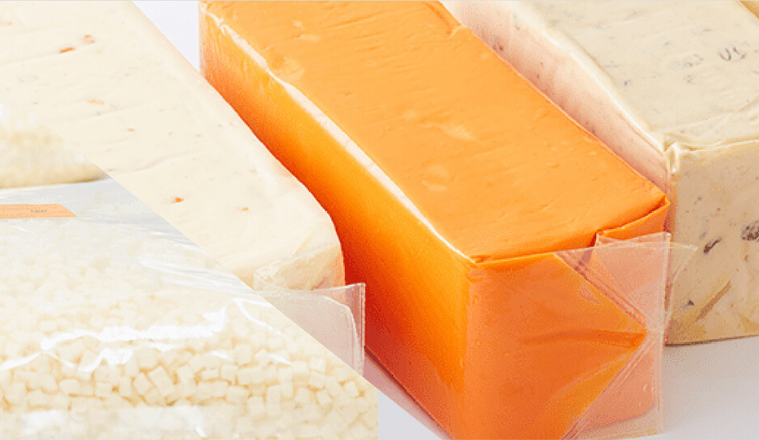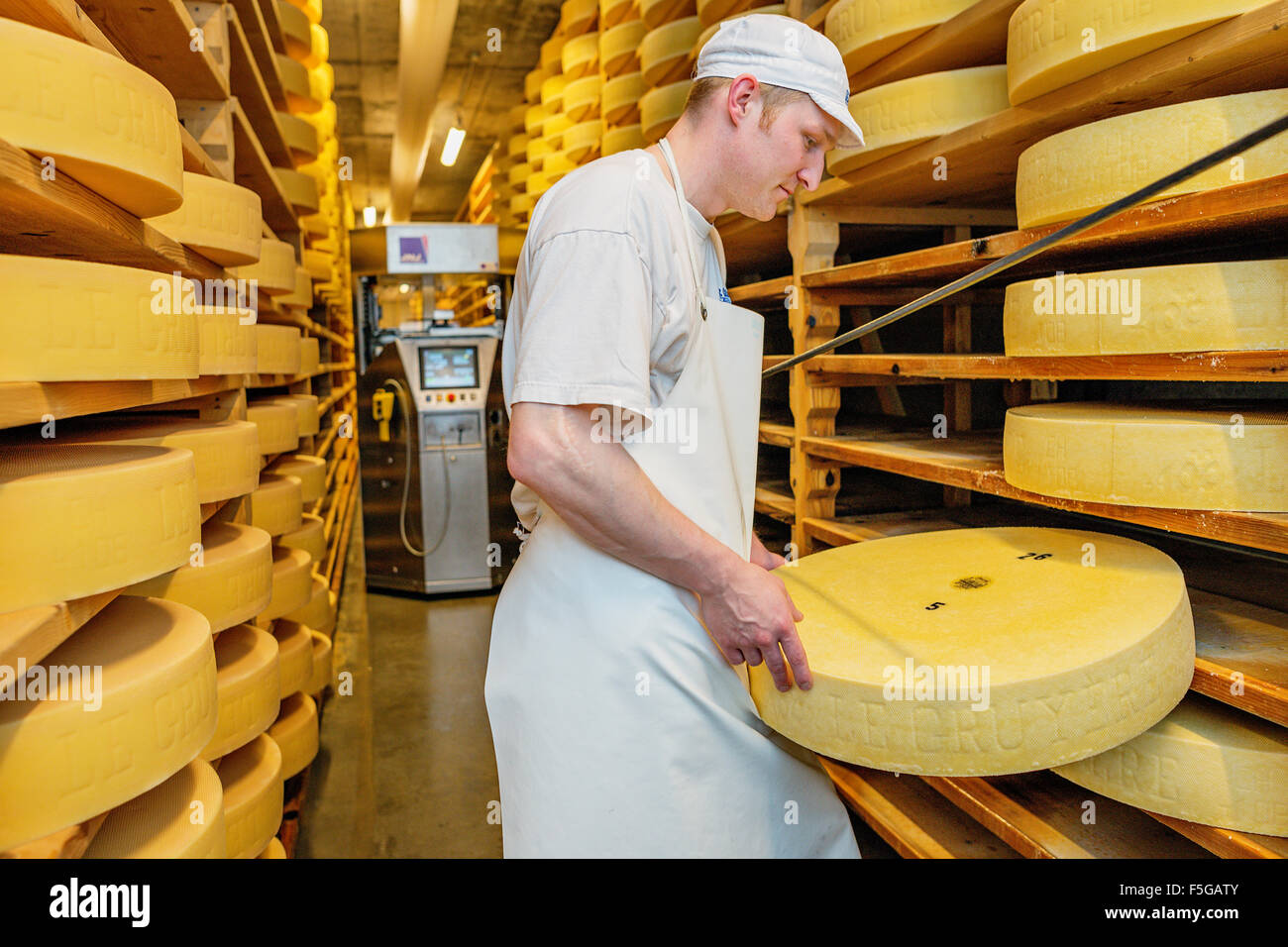An In-Depth Take A Look At Cheese Manufacturing: Active Ingredients, Techniques, and the Future of Craftsmen Cheeses
The complex procedure of cheese manufacturing is a remarkable convergence of art and science, where high-grade milk, rennet, and specific microbial cultures offer as foundational elements. As the sector increasingly prioritizes sustainability and openness, the future of artisan cheeses promises to show both heritage and progress.
Key Components in Cheese Manufacturing
A range of crucial components play an essential function in cheese production, each adding to the end product's taste, texture, and character. The key component in cheese is milk, which can come from numerous resources, including cows, goats, and lamb - cheese factory melbourne. The kind of milk utilized substantially influences celebrity's preference and uniformity; for example, cow's milk usually produces creamier cheeses, while goat's milk often creates appetizing varieties
Another vital ingredient is rennet, an enzyme used to curdle the milk, separating it into curds and whey. The source of rennet can be animal, vegetable, or microbial, each giving distinct features to the cheese.
Salt not only improves the taste but also serves as a preservative, inhibiting the development of unfavorable germs. In addition, numerous flavoring representatives, such as herbs, seasonings, or even smoked timber, can be included in create distinct artisanal cheeses. Together, these active ingredients develop the foundation of cheese production, setting the phase for diverse and abundant cheese ranges.
Conventional Cheese-Making Strategies
Making use of standard cheese-making strategies, craftsmens around the globe protect classic techniques that have been given with generations. These techniques frequently stress the use of top notch, locally sourced milk, which is central to the special tastes and textures of artisanal cheeses. The procedure usually starts with the careful heating of milk, followed by the addition of societies and rennet to facilitate coagulation.
Once the curds create, they are reduced, enabling whey to drain pipes, a critical action that affects moisture web content and appearance. The curds are after that gently stirred and prepared to accomplish the desired suppleness. Afterward, they are drained pipes and pressed right into molds. Salting is an important element of this procedure, improving taste while additionally acting as a chemical.
Aging, or affinage, is an additional essential component, throughout which cheeses create their characteristic aromas and tastes. Craftsmens might use specific aging settings, making use of moisture and temperature level controls to improve the cheese's profile. The dedication to these traditional techniques not only sustains neighborhood economies however additionally adds to the abundant variety of cheese selections discovered worldwide, celebrating cultural heritage and artisanal craftsmanship.
Modern Innovations in Cheese Manufacturing
Just how have technological developments transformed cheese production in current years? The assimilation of modern-day technology has transformed both the efficiency and high quality of cheese manufacturing.
Additionally, improvements in microbiology have actually allowed cheesemakers to choose details bacterial cultures and enzymes, optimizing taste accounts and boosting rack life. Using sensor technology for monitoring fermentation conditions has also come to be widespread, enabling real-time modifications to keep optimal atmospheres for cheese aging.

These advancements not only enhance the high quality and sustainability of cheese production however additionally More Bonuses empower craftsmen manufacturers to keep conventional tastes while accepting modern efficiency. As modern internet technology remains to advance, the future of cheese manufacturing looks encouraging, blending custom with innovation.
The Role of Terroir in Cheese
In the world of cheese production, terroir plays a crucial function in defining the distinctive characteristics of various cheeses. Terroir, a French term commonly linked with wine, includes the ecological factors that affect farming items, including dirt structure, environment, and local plants and animals. In cheese-making, the distinct qualities of the region where the milk is sourced can convey specific tastes and appearances to the end product.
As an example, the grazing problems of milk animals substantially influence the milk's composition, affected by the sorts of yards and natural herbs available in a specific place. This varies not only in between nations however likewise in between regions within the exact same country. Additionally, the microbial areas existing in the environment add to the fermentation processes, resulting in varied profiles in flavor and fragrance.
Cheeses such as Roquefort, Parmigiano-Reggiano, and Cheddar exhibit exactly how terroir can shape their identities, making them unique and usually safeguarded by geographical indications. As producers significantly acknowledge the value of terroir, there is a growing emphasis on sourcing regional active ingredients and keeping conventional practices, making certain that each cheese genuinely reflects its origin.

Future Trends in Artisan Cheeses
A remarkable change is occurring in the artisan cheese industry, driven by progressing customer choices and technological innovations. Progressively, consumers are gravitating toward special, top notch products that highlight both sustainability and regional sourcing - cheese makers melbourne. This trend is prompting artisan cheesemakers to innovate, focusing on small-batch production and making use of traditional strategies while incorporating contemporary innovation to enhance high quality and safety and security
Furthermore, there is an visite site expanding interest in plant-based and alternate milk products, pressing typical cheesemakers to discover brand-new methods, such as cashew or almond-based cheeses. This shift not just accommodates dietary constraints but also straightens with ecological problems regarding animal farming.
Additionally, openness in sourcing and production processes is ending up being critical. Consumers are a lot more informed and demand traceability, motivating manufacturers to embrace more clear labeling practices and engage in storytelling that highlights their methods and worths.
Verdict
In conclusion, the detailed process of cheese production combines traditional techniques with modern-day advancements, causing a varied variety of tastes and appearances. The emphasis on high-quality components and the impact of terroir underscore the virtuosity included in cheese manufacturing. As the industry advances, a concentrate on sustainability and openness will likely form the future of artisan cheeses, satisfying a significantly discerning consumer base that values credibility and craftsmanship in dairy items.